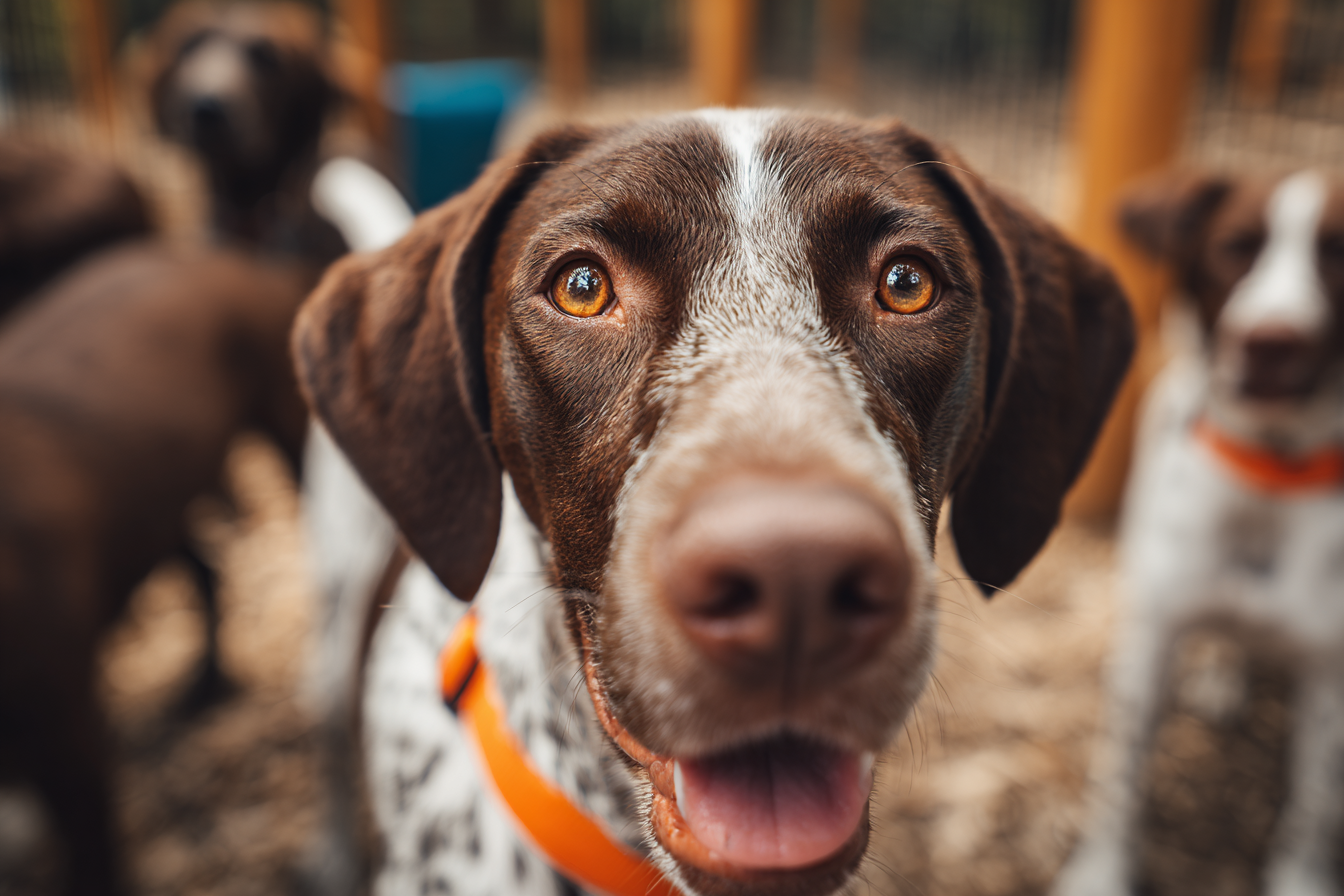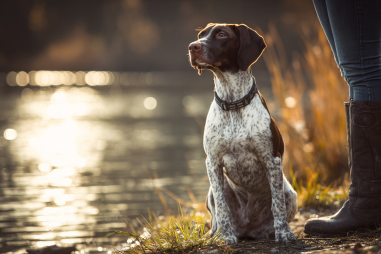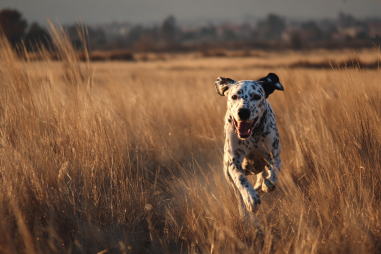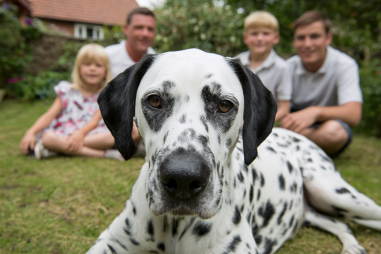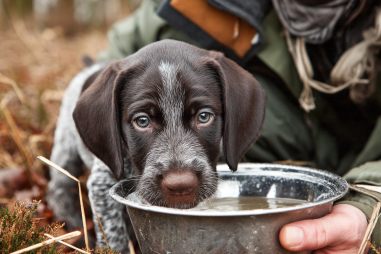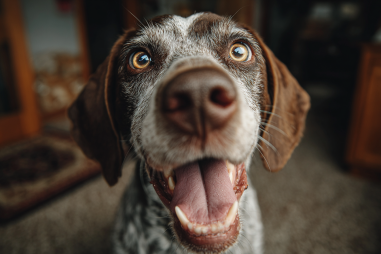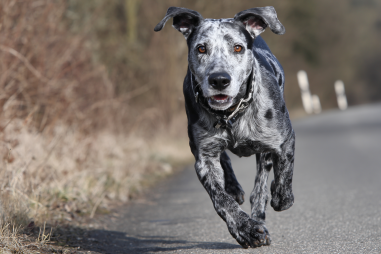Raising a Pointer dog can be a truly rewarding experience. Known for their intelligence, agility, and affectionate nature, Pointers make wonderful companions for active families and hunters alike. However, like all breeds, they need proper socialization to thrive as friendly, well-adjusted adults. Socialization helps your Pointer confidently interact with new people, other animals, and different environments. Without it, your dog may develop fears or behavioral problems that affect their happiness and your enjoyment of your furry friend. Let’s explore essential socialization tips tailored specifically for Pointers to help you raise a balanced and happy companion.
Why Socialization Is Especially Important for Pointers
Pointers are high-energy, intelligent dogs with a strong prey drive and instinctual hunting skills. While these traits make them excellent working dogs, they can also result in heightened sensitivity to unfamiliar situations. Early and ongoing socialization helps reduce anxiety and fear responses, enabling Pointers to become adaptable to a variety of people, pets, and changing surroundings. When properly socialized, Pointers tend to be confident, friendly, and reliable—not just out in the field, but in everyday life as well.
Establishing trust and positive associations during your Pointer’s formative weeks and months can have a lifelong impact on their temperament. Socialized Pointers often show better impulse control, less fear aggression, and greater ease adjusting to new routines or unexpected encounters.
Understanding the Socialization Timeline for Your Pointer
Socialization is most effective when started early, ideally between 3 to 14 weeks of age. This critical period is when puppies absorb new experiences and build neural pathways that shape their emotional responses.
Here’s a brief overview of the socialization stages:
- 3-7 weeks: Your Pointer puppy begins learning about their environment and littermates. Gentle handling by humans helps instill trust and reduces future fear.
- 7-14 weeks: This is the prime socialization window. Puppies are remarkably open to new sounds, people, animals, and surroundings. Positive exposure now can prevent many behavioral problems later.
- 14-16 weeks: Sensitivity to new experiences may increase. Gradual introduction with positive reinforcement is important.
- Beyond 16 weeks: While socialization is still useful, it generally requires more time and patience as dogs become more cautious with unfamiliar stimuli.
Consistent and gentle exposure during these stages, combined with praise and treats, sets the foundation for a balanced personality.
Introducing Your Pointer to Different Environments and People
Pointers are naturally curious but can be wary of unfamiliar places or individuals without early socialization. To nurture a confident adult dog, aim to expose your puppy to a wide range of environments and people starting at a young age.
Try to introduce your Pointer gradually and positively to:
- Busy parks and quiet neighborhoods
- Different surfaces such as grass, concrete, sand, and gravel
- Various sounds like traffic, children playing, doorbells, and thunderstorms
- People of all ages, ethnicities, and appearances, including men, women, children, and people wearing hats, glasses, or uniforms
- Other household pets like cats or smaller dogs, always under supervision
Be sure to keep initial meetings short and enjoyable. Watch for signs your puppy is overwhelmed or stressed, and don’t force interactions if your dog is nervous. Instead, back off and try again later with calm reassurance.
How to Safely Introduce Your Pointer to Other Dogs
Because Pointers often have a strong prey drive and high energy levels, introducing them to other dogs requires a thoughtful approach. Dogs that lack proper peer socialization may be prone to fearfulness or overexcitement in play.
Follow these tips when introducing your Pointer to other dogs:
- Choose friendly, vaccinated dogs: Partner with owners of well-mannered dogs known for their social skills.
- Meet on neutral territory: Avoid your dog’s home or a highly territorial location to reduce potential conflicts.
- Keep initial interactions brief: Allow short, controlled greetings before letting play sessions naturally progress.
- Observe body language closely: Look for relaxed postures, wagging tails, and play bows versus signs of stress like growling, stiff bodies, or avoidance.
- Intervene if needed: Redirect attention with treats or toys if play becomes too rough or one dog seems uncomfortable.
Regular doggy playdates and visits to puppy classes can provide ongoing healthy socialization and reduce future anxiety around other dogs.
Recognizing and Addressing Signs of Poor Socialization
Sometimes socialization may not go as smoothly, or a Pointer may develop fearful or aggressive behaviors as a result of insufficient early exposure. Common signs of poor socialization include:
- Excessive barking, growling, or lunging toward strangers or unfamiliar dogs
- Freezing, cowering, or attempting to hide in new environments or during social interactions
- Overly reactive behavior, such as chasing, nipping, or destructive tendencies
- Difficulty calming down or focusing in the presence of new stimuli
If you notice these behaviors, it’s important to address them with patience and positive methods rather than punishment. Seeking help from a professional dog trainer or behaviorist experienced with Pointers can guide you in developing a customized desensitization and counter-conditioning plan.
Consistency and positive reinforcement—rewarding calm and friendly responses to social stimuli—are key strategies to help your dog build confidence and trust over time.
Continuing to Maintain Your Pointer’s Social Skills Throughout Their Life
Socialization isn’t just for puppies. Maintaining your Pointer’s social skills throughout their life ensures they remain well-adjusted and comfortable in new situations. Regular exposure to new people, places, and dogs keeps their social muscles strong.
You can keep up this essential practice by:
- Continuing training classes or dog sports that encourage social interaction
- Scheduling regular outings to pet-friendly locations
- Organizing playdates with well-socialized dogs
- Introducing your dog to new experiences, like car rides, outdoor adventures, and family events
- Remaining vigilant for any signs of unease or stress and addressing them promptly
Regular mental stimulation, exercise, and positive social experiences contribute to your Pointer’s lifelong happiness, health, and harmony with the world around them.
By prioritizing socialization from an early age and nurturing it throughout your Pointer’s life, you give your dog the best chance of becoming a confident, friendly, and adaptable companion. With patience and consistency, your Pointer will grow into a joyful member of your family and community.

